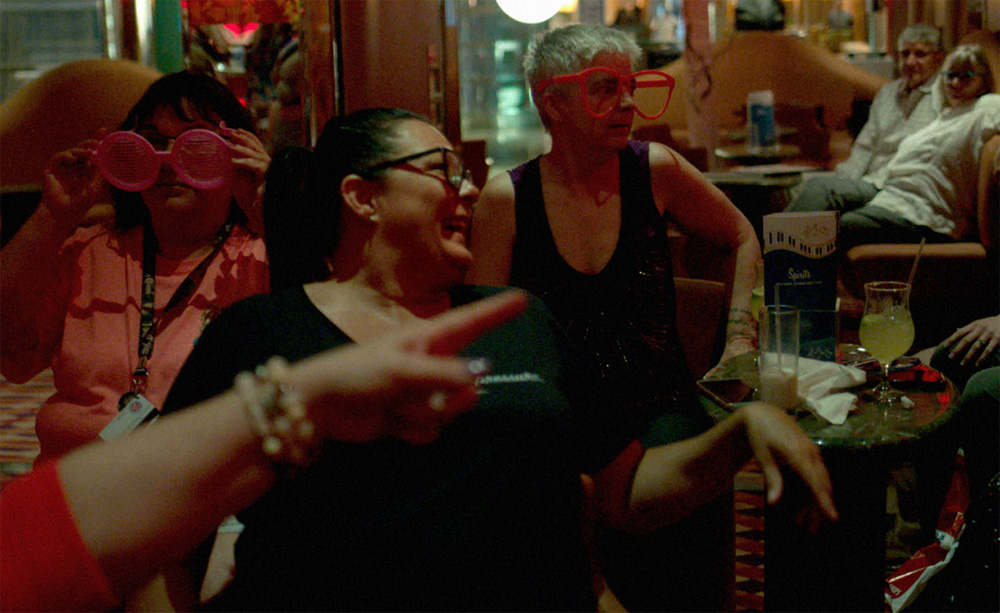At one point in “Driver,” Desiree Wood takes a call on one of her long-haul jobs as a trucker from another woman considering entering the field. It is in no way an easy profession, she describes, but one that could be right for certain people who could embrace such a solitary existence and when the caller tells her that she’s been a survivor of domestic abuse, Wood says a lot of female truckers she knows have that history before outlining the introductory steps into trucking that require a period in which any likely applicant is bound to be partnered with potentially problematic men to mentor them, a process where male drivers are known to take advantage of the position that they have.
In Nesa Azimi’s eye-opening doc, you gradually become conscious of the fact that Wood has carved out her own position of power in the male-dominated profession as the president of Real Women in Trucking, a loose-knit association between female long-haul truckers who support each other on those lonely nights out on the road with friendly calls and have parlayed their connections into banding together for industry reforms. Somehow as improbable as the latter seems, it appears no less daunting than just getting through the day for Wood, for better or worse, after literally taking shelter in her truck after being left homeless and finds the lack of material items she once had to keep track of rather refreshing.
While “Driver” paints a dire picture of the trucking industry, offering a fascinating state of affairs beyond its main subjects grappling with its inherent misogyny when truckers are seeing opportunities shrink and weigh the pros of cons of each individual gig to see whether it’s worth the return, Azimi and co-writer/co-editor Nicolas Borel fashion an overview in which the allure of the open road can be deeply felt, often making the viewer feel as if they’re riding shotgun with either Wood or Michelle Kitchin, a trucker who’s been in the game for over three decades, happy to let the rest of the world pass them by when it hasn’t exactly been kind to them. This isn’t an easy life either, with complaints running the gamut from Kitchin’s dissatisfaction with a roadside stop’s shower and Twizzlers selection to Wood having to deal with unfair loan repayments on her big rig. However, the film illuminates how the women have afforded themselves some peace of mind in getting behind the wheel to take control of their own destiny and growing to trust others in the professional network they create.
The pacing becomes key, with Azimi and Borel embracing the gentle rhythms of a cross-country drive as the film patiently comes into focus, with detours of a cruise ship gathering of Real Women in Trucking and a trade convention giving shape to what Wood and Kitchin are a part of when their individual scenes reflect a punishing sense of isolation. “Driver” may strike some as a bit too deliberate in its approach, but the results of such a steady build are ultimately devastating when observing the totality of what Wood, in particular, is up against and how someone with little to her own name has made so many others feel a little less anonymous in their struggles.
“Driver” will screen again at the Tribeca Festival at the AMC 19th St. East 6 on June 8 at 5:15 pm and June 15th at 6:15 pm.




